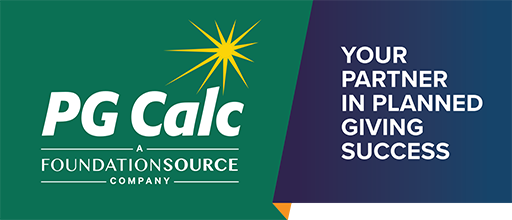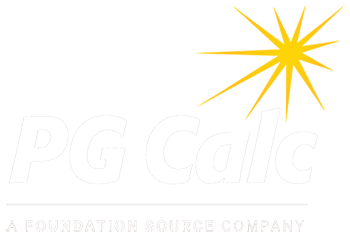Does this sound familiar? “I have to write the lead article for our newsletter by Friday. Where are those photos I want to use for the testimonial? What format should we use for our legacy society lunch? Should we hold the event at all? I need to get approval to the edits to our gift acceptance policies. Are we getting everything to we are entitled to from that bequest?”
Read your job description. What is your primary responsibility? Does your title include Planned Giving Officer, Development Officer, Advancement Officer, Major Gift Officer, or similar terms? The principal concern and obligation of such a position is to attract voluntary support to advance the mission of a non-profit organization. But often, support functions prevent fundraisers from focusing on the most important part of their job: fundraising.
Fundraising is Fundraising
The gold standard for attaining fundraising success is having personal contact with those likely to make a charitable contribution. Establishing these contacts takes time. Assembling a prospect portfolio requires research, collaboration with program staff, and engaging leadership to make introductions. These steps are all necessary prerequisites to engage in the business of fundraising.
To work a portfolio of prospects, you have to formulate strategies to move someone from a prospect to a donor. To ensure coordination of contact from your charity, conversations and actions have to be recorded in your CRM. Recording points of contact also creates an institutional memory that facilitates stewardship.
Every interaction comes with a long tail of follow up. Besides basic data entry, there may be personal thank you notes and emails. Often there are offers of or requests for additional information for the prospect or their advisors. Good fundraisers will have formal plans for each prospect to move them from identification to solicitation. Once the prospect says yes, there may be gift agreements and other administrative work. Finally, stewardship begins, and the cycle repeats itself.
What’s Keeping You From Fundraising?
The basic obligations to undertake the core duty to raise money take a significant investment of time and attention. How much time is left for the other things that keep a planned giving effort going? If portfolios are robust, fundraising requires a substantial commitment of personal resources.
Depending on seniority and support resources, a typical planned giving officer is also responsible for:
- Marketing (planned giving website content, strategy, tracking performance, creating campaigns, production oversight, lead qualification)
- Estate and life income administration
- State CGA registration and annual filing
- Complex gift evaluation and intake
- Engagement with professional advisors
- Continuing education
- Internal training, support, and fundraising collaboration
- Events
It is unfair to characterize these duties as just “administrative.” The planned giving specialist may be the ideal resource to manage these important adjunct tasks in the planned giving office. Nonetheless, given the supreme importance of core fundraising duties, it is not the best use of resources to assign these accessory tasks to fundraisers.
Solutions
There is no silver bullet to offload non-fundraising duties from those charged with raising money. Even so, we will offer possible solutions to expand time available to focus on the core business of fundraising.
1. Creative Ways to Add Support Staff
Development Associates, Event Coordinators, Stewardship (Donor Relations) Managers, Program Coordinators are all positions that can undertake many of the support functions listed above. Adding headcount is a monumental undertaking. Management requires significant proof of increased return on investment before adding a new FTE. If administrative positions don’t already exist, where are these resources going to come from?
There may be employees (both in Development and other departments) who are being underutilized. Some support resources may already exist to support major, principal, or annual gifts; can you utilize these staff members to take the pressure off planned giving?
Adding a new planned giving officer may be off the table, but there are low-cost solutions to adding resources. Are there opportunities for interns to help with event planning, marketing production, or lead qualification? A new gift officer may be a non-starter, but consider entry level positions for those interested in building a career in fundraising. These salaries will be lower, and the positions could be part-time or even temporary.
Are there other departments that could take on traditional gift planning responsibilities? The general counsel’s office may be a perfect fit for estate administration and evaluating and processing complex assets. Even a collaboration of shared duties with the general counsel can relieve pressure on the fundraiser.
Many modest fundraising operations have event planning resources either on staff or under contract. Much of the work of planning and executing an event can be managed by those already in place.
2. Outsourcing
For every non-fundraising responsibility listed above, there is an opportunity to outsource those duties. Do these resources cost money? Of course, but the fundraiser’s time is not free. Time spent on non-fundraising duties costs the charity in reduced fundraising revenue. Outsourcing is not an either/or proposition. It may be cost and time effective and produce a higher quality product to outsource much of the marketing effort.
Consider the largest non-fundraising time commitments. If marketing is a huge responsibility, vendors can offer high quality marketing products, such as websites, surveys, direct mail, professional marketing strategy, and support. Let the vendor work with internal production partners to create materials and campaigns to market planned gifts. Such an approach will utilize the best practices in marketing available today.
Life income programs present complex challenges that require skills that are often not the core competency of the fundraiser. Many state insurance departments require initial registration before issuing gift annuities in their jurisdiction. In addition, some of these same states have CGA annual filing requirements that seek extensive, detailed, and sometimes arcane information. Even a charity’s business office or general counsel is unlikely to have the experience to perform these tasks without a significant investment of resources. Third-party vendors can assume all of these regulatory compliance responsibilities.
Conclusion
Approach the business of fundraising holistically. There is asking people for money, and there are fundraising support functions. Where is time best spent? Organize, seek internal support, and outsource for fundraising success.

